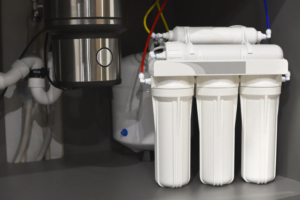1. What Is a Career in Research?
A career in research is essentially conducting studies and experiments to create new knowledge, solutions, or insights in the fields of science, social sciences, humanities, healthcare, and technology. Researchers collect data, analyze it, and publish their findings to contribute to their field of study.
2. How Do I Start a Career in Research?
Starting a research career usually starts with a degree in a particular field. Then you can acquire experience through internships, fellowships, assistantships, or collaborating with professors or industry professionals. Foundational skills, such as data collection and analysis, will put you on a good track.
3. What Degree Do I Need for a Career in Research?
Although the degree required does vary with the field of research, most research positions require at least a bachelor’s degree in an appropriate area of study. Master’s or doctoral degrees are usually required for more senior roles, including independent research and leadership positions.
4. Do I Need a Graduate Degree to Research?
For some types of research, especially in academics or advanced scientific fields, a graduate degree-master’s or Ph.D.-is very helpful and usually required. A graduate education teaches you specialized knowledge and research techniques.
5. What Skills Are Needed for Research Careers?
Critical thinking and problem-solving
Collecting and analyzing data
Proficiency in tools of research
Good writing and communication skills
Attention to detail
Time management
Team work and collaboration
6. How do I get experience in research?
Experience can be gained by working as a research assistant, participating in independent studies or internships. Many institutions offer opportunities for both undergraduate and graduate students to help faculty members conduct research.
7. What kind of research jobs are there?
Research careers can be found across a variety of fields. Research is done both in:
Academic research
Universities
Research institutes
Industry research
Companies in pharmaceutical industries
Companies with technological research.
Government research (agencies such as NASA or the Department of Health)
Non-profit research (social programs or policy development)
Market research (for businesses to better understand consumers)
8. Is It Hard to Get a Job in Research?
The competition level for securing a research position varies with the higher levels. In general, if your skills are more specialized and advanced, your chances are high. Internships, networking, and keeping track of the latest trends in your field will surely increase your chances of getting a research job.
9. How Important Is Networking for a Research Career?
Networking is crucial in the research community. Attending academic conferences, joining professional associations, and engaging with experienced researchers can lead to collaborations, job opportunities, and valuable advice. Research communities often value reputation and relationships within the field.
10. How Do I Find a Research Mentor?
Identify a professional whose research interests align with yours. A professor, researcher, or industry leader comes in handy. The following follow-up reach out should have specific questions, be proactive in the learning process, and show interest in their research for the development of an ideal mentorship relationship.
11. What Are Some Challenges in a Research Career?
Common challenges in research careers include:
Obtaining funding
Long hours of meticulous work
Potential failure of experiments or studies
Management of deadlines, especially in academic environments
Research with teaching or administrative work in academic settings
12. How do I prepare for a Ph.D. program in research?
In preparing for a Ph.D., research skills are to be honed in on, preferably with some topic or question of interest. Experience in the settings of research should be sought; relevant advanced courses and publications or projects that might improve the application for doctoral programs can also be engaged.
13. What Are Some Essential Qualities of a Successful Researcher?
Persistence and resilience in overcoming obstacles.
Curiosity and a desire to solve complex problems.
Collaborative mindset when working in teams or interdisciplinary fields.
Organizational skills to handle large amounts of data and results.
Innovation and willingness to explore new ideas.
14. How Do I Select a Research Topic?
Selecting a research topic begins with brainstorming areas of interest within your field. Consider societal relevance, gaps in current knowledge, feasibility, and potential impact. Discuss your ideas with peers, mentors, and academic literature to narrow them down into a specific, researchable topic.
15. What Are the Best Research Tools and Resources?
The best research tools depend on your field, but some commonly used ones include:
Statistical software (SPSS, R, Python)
Data analysis tools (Excel, NVivo, MATLAB)
Literature databases (Google Scholar, PubMed, JSTOR)
Reference managers (Zotero, EndNote)
Collaboration platforms (GitHub, Google Drive, Microsoft Teams)
16. Is Grant Writing Important in Research?
Grant writing is an important skill for researchers who want to get funding for their projects. Funded projects enable one to purchase necessary materials and often pay for team members. As you progress in your career, you will most likely need to write and submit grants.
17. Can I Work in Research Without a Ph.D.?
Yes, it is possible. Although a Ph.D. is required for higher academic research positions, many opportunities exist in industry, government, or healthcare research for bachelor’s or master’s degree holders, especially in data collection, analysis, or technical support roles.
18. What’s the role of publications in a research career?
Publications in research findings through academic journals or conferences are essential for furthering a career, more specifically, in academia. Publications validate your expertise, contribute to the field, and improve your reputation among professionals.
19. What Are Post-Doctoral Opportunities?
Postdoctoral positions allow researchers to gain additional training and independence upon acquiring a Ph.D. The experience associated with the postdoctoral position includes original research, publishing on various topics, and learning a special skill set which will help a Ph.D. holder start a full-time academic job or move into industry careers.
20. How Do I Balance Research with Personal Life?
Balancing research with personal life requires clear time management, setting boundaries, and knowing when to step back from work. Scheduling downtime, staying organized with tasks, and having open communication with mentors and colleagues about your workload can help maintain that balance.
A career in research involves passion, patience, and constant learning. Whether in academia or industry or beyond this, the key to this is taking care of your drive, focus on set goals, and strong networks along your career path.









Strendusmex, now that name rings a bell. I’ve seen a few ads, looks slick and modern. Might be worth a shot if you’re looking for something a bit more up-to-date than the usual. See for yourself: strendusmex